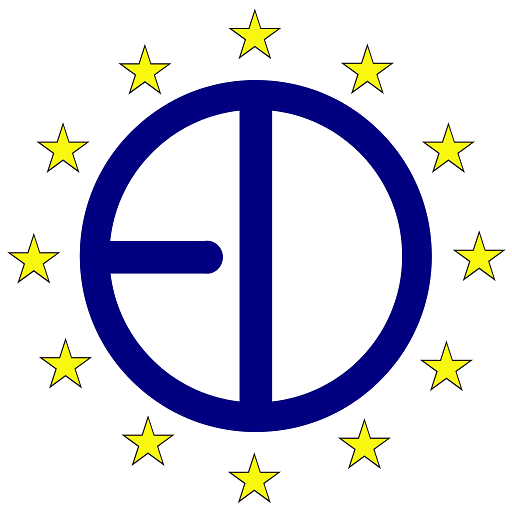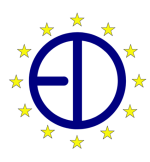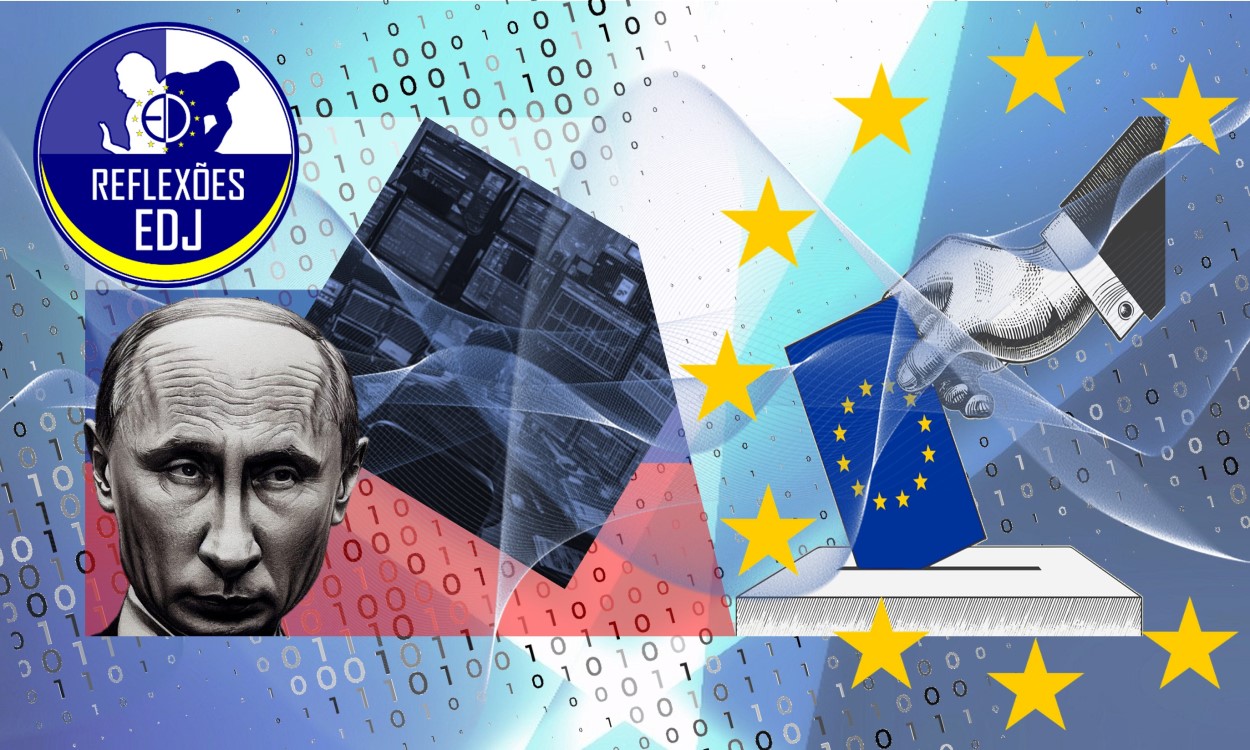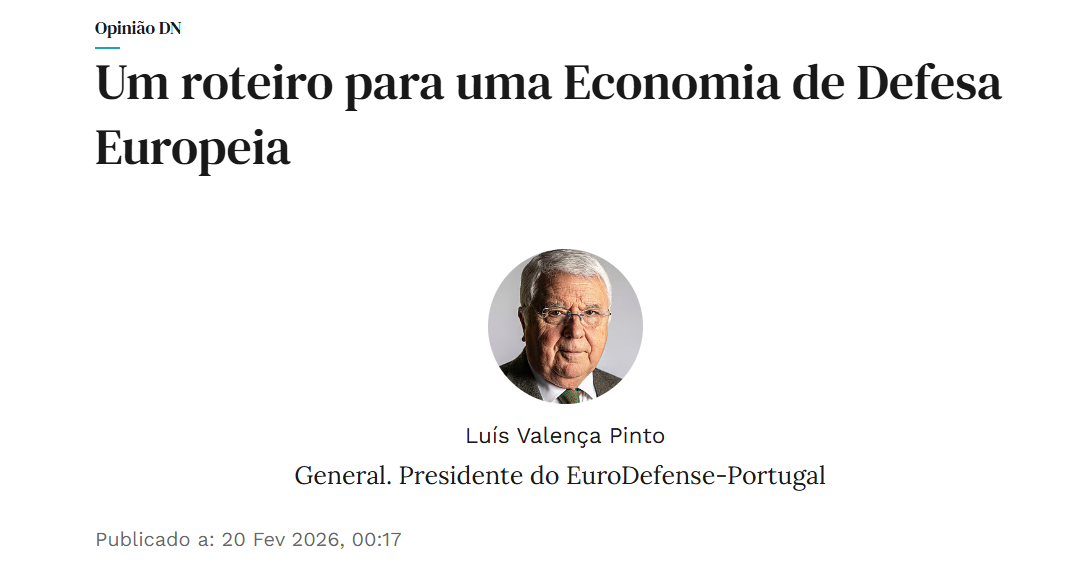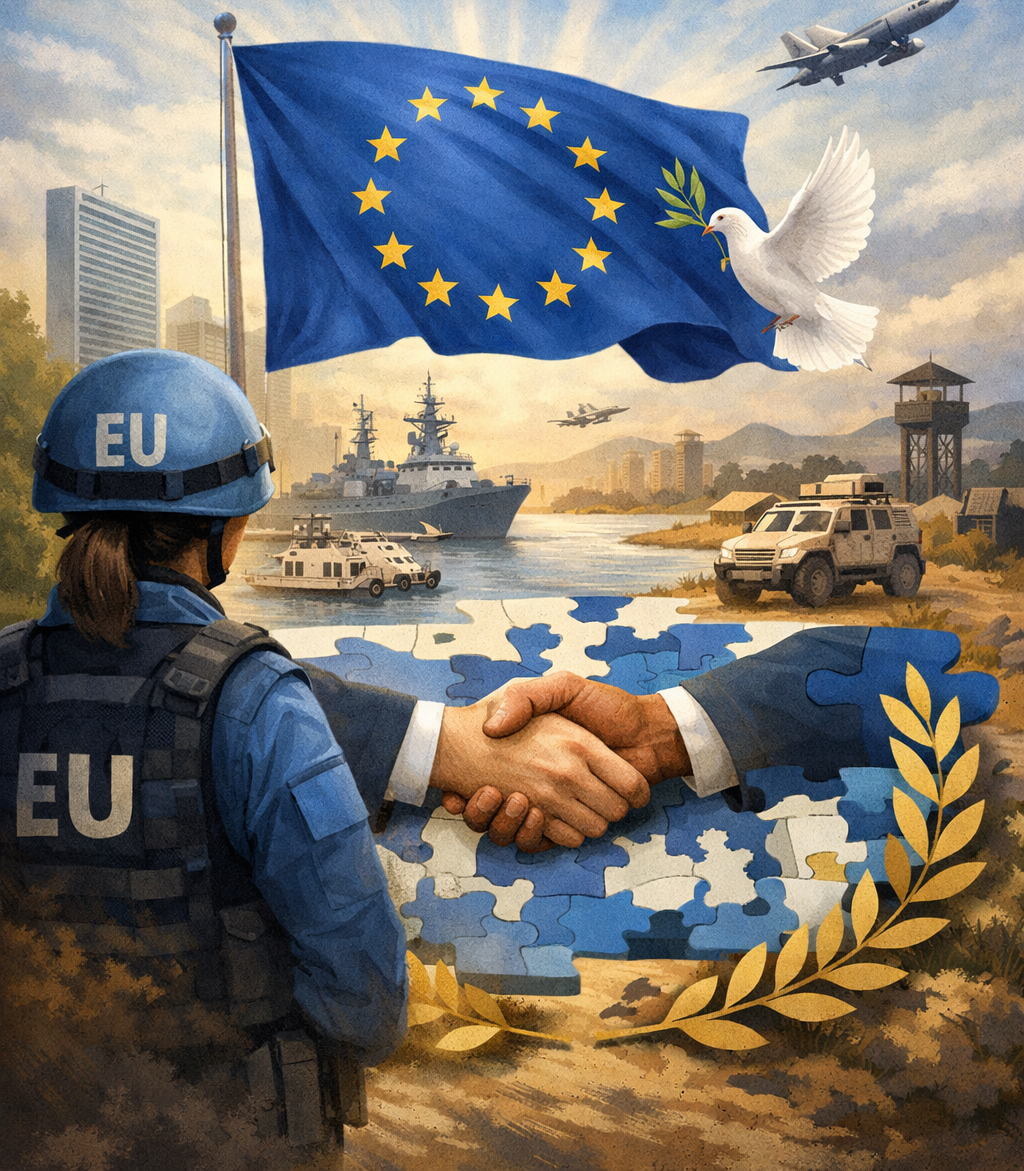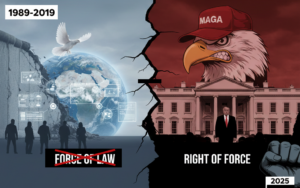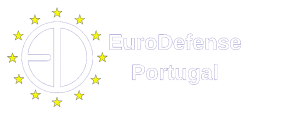With the upcoming European Union elections, the Kremlin has significantly increased its use of smart power, including disinformation, spreading confusion and distorting Europe’s political landscape. This aggressive hybrid warfare tactic, which the world will be seeing more and more of, has targeted no less than 25 countries in the EU.
Across Europe, hundreds of websites and fake social media accounts used to spread disinformation and propaganda have been uncovered. Recently, the website “Voice of Europe” based in Prague, specializing in spreading rhetoric from the extreme left and right political spectrums, and accused of funding pro-Russian politicians, was taken down by Czech authorities who imposed sanctions on those involved. In Germany, an alarming spike in fake social media accounts was reported by the German government, stating that “more than a million German-language posts were sent from an estimated 50,000 fake accounts”. These messages conveyed false narratives about Chancellor Olaf Shultz, accusing him of neglecting German citizens due to his support for Ukraine. The situation was similar in France, where false websites were impersonating mainstream media outlets such as Le Monde and France 24, conveying anti-Ukrainian messages.
European governments have announced that fake ad campaigns on social media platforms have reached 38 million users in five months. While the majority of Russian interference is direct, some European officials such as AFD German party members have facilitated Russia’s influence, as Ursula von der Leyen recently denounced. Moreover, recent investigations have demonstrated that multiple candidates running for the upcoming European elections have received payment from the Russian government or its proxy states, to try to steer the result of the elections towards a pro-Russian policy.
All of Russia’s acts within the cyber space has been deemed illegal, going against key European legislations on media freedom and digital rights, such as the European Media freedom act, the Artificial intelligence Act and or the Digital services Act. The EU has warned the Russian Federation that any further cyber attacks and disinformation would led to a drastic escalation from the European part.
The Kremlin’s goal is explicit; introduce chaos in Europe and foster the election of pro-Russian candidates to the European Parliament in order to reinforce the pro-Russian narrative within the institution. Their strategy consists of exploiting the genuine concerns many EU citizens share and tie them to the war in Ukraine. By taking advantage of the current socioeconomic issues the EU faces, Russia aims to convince EU citizens that Ukraine’s integration into the EU would only aggravate the situation and threaten the future of Europe. In doing this, Russia attempts to destabilize the European Union by dividing its members while undermining its democratic framework and cohesion. By funding influential populist politicians, Russia is aiming to gain access to the support of personalities within the EU able to legitimize Russia’s position, while subsequently having the ability to mitigate the negative consequences of the war with Ukraine, such as sanctions and isolation.
The results of the upcoming European elections will certainly influence the position of the EU in regards to the the war in Ukraine and will define the future relations between Europe and Russia.
Furthermore, the much anticipated results of the US elections, may force Europe to rethink its current stance on regional security and will impact its ongoing effort to ensure the resilience of its democratic model.
Since the start of the war, the EU has supported Ukraine with over $100 billion, from military assistance to refugee aid. In February of 2024, the EU agreed on an additional $54 billion dollars aid to support Ukraine’s recovery, which could appear as slightly premature but portrays the unwavering support the EU continues to show in defense against the law infringing state.
While Russian interference will not be distinctively represented in the election results, it will put Europe under strain.
Given recent projection, the EU will remain pro-Ukrainian and the expected shift to the far right will not be so important as to threaten the current Pro-Ukrainian stance.
Nonetheless, secondary impacts may occur as political parties such as the AFD in Germany and PVV in the Netherlands have forged ahead with increasingly pro-Russian positions. The shift to political polarization with isolationist policies within European states will have adverse impacts on national debates held on regional security and Ukrainian support in the future.
In order to protect its sovereignty, Europe must reduce its vulnerability to cyber threats.
As of today, France is the only EU member equipped with cyber war capacity and a collective and coordinated effort to improve Europe’s ability to protect itself against cyber aggressions should be undertaken.
One of the pillars of sovereignty is the absence of interference. In the past years, Europe has seen its sovereignty eroded following aggressions by foreign states. Russia’s interference in the EU’s fundamental democratic processes has impacted its security and integrity. In a research conducted by the European Parliament it was found that “37% of European citizens would like to see additional efforts in defense and security”, putting this as one of their priorities in reinforcing the EU’s position globally and its strategic autonomy.
This is a necessary long-term investment for a union which must stand against aggressors and continue to prove that interdependence and ruled based cooperation does lead to peace and development.
29 de maio de 2024
Célia Vanderweyen
EuroDefense Jovem Portugal
Wee, O. (2024) ‘Russian disinformation against Ukraine heightens ahead of EU parliamentary elections,‘ POLYGRAPH.info, 22 April. https://www.polygraph.info/a/7580484.html.
Kauch, F.R.P.A., Javier Nart, Jordi Cañas, Urmas Paet, Hilde Vautmans, Jan-Christoph Oetjen, Olivier Chastel, Nathalie Loiseau, Bernard Guetta, Karen Melchior, Dragoş Pîslaru, José Ramón Bauzá Díaz, Michael (no date) MOTION FOR A RESOLUTION on new allegations of Russian interference in the European Parliament, in the upcoming EU elections and the impact on the Union |B9-0262/2024 | European Parliament. https://www.europarl.europa.eu/doceo/document/B-9-2024-0262_EN.html.
The many faces of foreign interference in European elections (no date). https://www.gmfus.org/news/many-faces-foreign-interference-european-elections.
Geopolitical situation makes voting in European elections even more important | News | European Parliament.(no-date). https://www.europarl.europa.eu/news/en/press-room/20240415IPR20389/geopolitical-situation-makes-voting-in-european-elections-even-more-important.
Boniface, P. (2021) La géopolitique: 50 fiches pour comprendre l’actualité – 8e édition. Editions Eyrolles.
Adghirni, S. (2024) ‘France says almost all EU states target of Russian propaganda,’ Bloomberg.com, 29 April. https://www.bloomberg.com/news/articles/2024-04-29/france-says-almost-all-eu-states-target-of-russian-propaganda?srnd=politics-vp.
O’Carroll, L. (2024) ‘EU to investigate Meta over election misinformation before June polls,’ The Guardian, 30 April. https://www.theguardian.com/technology/2024/apr/29/eu-to-investigate-meta-over-election-misinformation-ahead-of-june-polls.
NOTA:
- As opiniões livremente expressas nas publicações da EuroDefense-Portugal vinculam apenas os seus autores, não podendo ser vistas como refletindo uma posição oficial do Centro de Estudos EuroDefense-Portugal.
- Os elementos de audiovisual são meramente ilustrativos, podendo não existir ligação direta com o texto.
